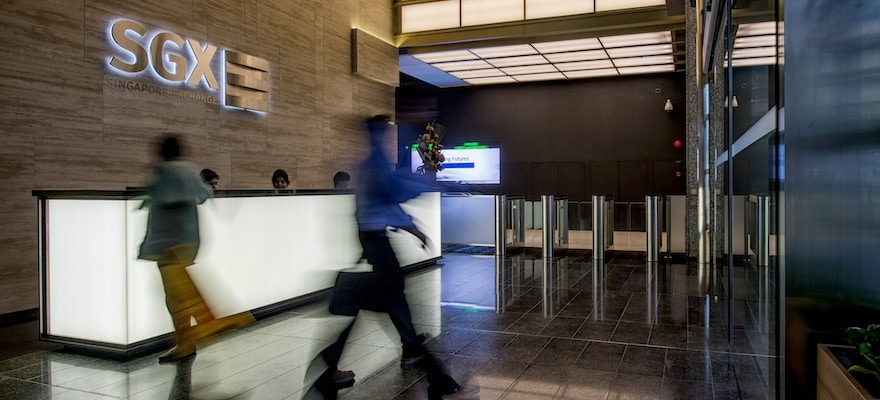The Singapore Exchange (SGX) reported a drop in revenue and profit for its fiscal first quarter, which the exchange said was against the backdrop of lower performance across all key business segments.
In the three months to September 30, SGX revealed that revenues pointed lower, coming in at $191 million, a loss of -13.0 percent YoY from $219.6 million in Q1 FY2016.
The FM London Summit is almost here. Register today!
Although operating expenses pared 8.0 percent to $93.7 million, compared to $102.3 in Q1 FY2016, net profit of the new fiscal year’s first quarter was $83.1 million, 16 percent lower compared with the same period a year ago.
In terms of earnings per share (EPS), the figure yielded a profit of 7.8 cents in Q3 2016, down -16 percent YoY from 9.3 cents in Q3 2015. The SGX board recommended an interim dividend of 5 cents per share, payable on 3 November 2016, essentially unchanged from a year ago.
Results Breakdown
In its equities and fixed income unit, which accounted for 11 percent of total revenues, the SGX saw $12.2 million from new listings and $9.6 million from corporate actions and other sources.
Meanwhile, Securities Trading and Clearing, which accounted for 25% of total revenue, posted proceeds of $47.1 million which reflects a YoY decrease of $8.9 million or 16 percent compared to $56.0 million in the last year. Securities daily average traded value (SDAV) also dropped, down 19 per cent to $0.99 billion, as the total traded value fell 17 percent to $62.2 billion.
Derivatives revenue, accounting for 37 percent of SGX’s total revenues, was down 22 percent or $20.1 million, coming in at $70.8 million compared to $90.9 million in the last year’s same period.
Commenting on the quarterly performance, Loh Boon Chye, CEO of SGX, said: “Our first quarter performance this year reflects lower levels of market activities, compared with a more volatile market a year earlier. Nevertheless, we remain committed to our long-term investment and diversification strategy while maintaining cost discipline. Our acquisition of the Baltic Exchange is progressing and we expect to complete the transaction by end November 2016.”
“Participants reacting and adjusting to slowing global economic growth, political uncertainties and implications of Brexit on the European economy could result in a period of relatively subdued trading volumes. We will continue to be disciplined about costs while investing to grow our business and be more competitive. We expect full year FY2017 operating expenses to be between $420 million and $430 million, and technology-related capital expenditure to be between $65 million and $70 million,” Mr Loh added.

















